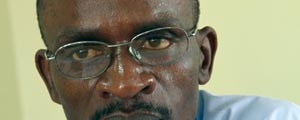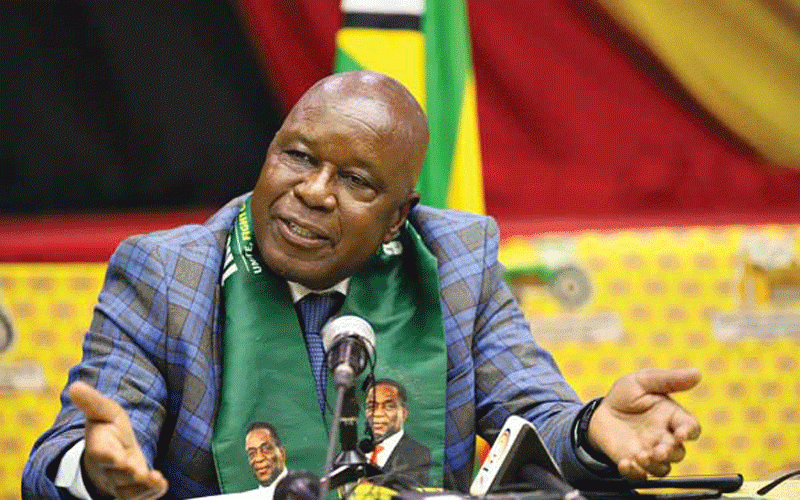
Zimbabwe could be torn apart by political strife as emotions continue to run high over the result of harmonised elections.
Viewpoint by Wisdom Mudzungairi
In the unlikely event, bickering between MDC-T leader, outgoing Prime Minister Morgan Tsvangirai, and President Robert Mugabe of Zanu PF over the poll outcome degenerates into something else, this could lead the country’s economy into immobilism.
These trying times are of extreme national anxiety.
There is a mood of despair among Tsvangirai’s supporters —they are apparently shocked and dejected at the unexpected defeat by Zanu PF.
The Premier’s supporters cannot understand how Zanu PF and Mugabe managed to win by a landslide, even making in-roads into his urban strongholds. Given the delicate situation the country is facing, some church leaders have urged peace and restraint as tensions rise over the July 31 general elections results.
This conspicuous feeling has gripped most of the country, where political activists’ hopes had been raised by the absence of coercion and bloodshed seen in past elections.
The Zimbabwe Heads of Christian Denominations — comprising leaders of the Zimbabwe Catholic Bishops Conference, The Zimbabwe Council of Churches and the Evangelical Fellowship of Zimbabwe — said: “We urge all political parties and stakeholders who feel aggrieved by any challenge or issue to act in a restrained manner that will allow for dialogue, due process and the preservation of peace and stability in Zimbabwe.”
- Chamisa under fire over US$120K donation
- Mavhunga puts DeMbare into Chibuku quarterfinals
- Pension funds bet on Cabora Bassa oilfields
- Councils defy govt fire tender directive
Keep Reading
Were the opposition politicians beaten at their game fairly by Zanu PF whose supporters feel they have restored the dignity of black Zimbabweans?
I am sure, if one goes into a relay they expect to win, if they are beaten to it, they must simply concede.
If that does not happen, they pursue their case peacefully or bow out gracefully.
For some, it is a dream deferred, but life must go on as usual. Isn’t life full of surprises after all?
The political parties that contested the elections should congratulate each other for a courageous stand to compete in the polls first and of course and let the country move on.
Is it about the bottom line (or the bottom dollar or a principled stand)?
After all has been said and done, Zimbabwe will now wait for the inauguration of the winning presidential candidate and for Mugabe to form a new government since he has been given a new mandate.
No doubt the greens (not Welshman Ncube’s MDC party, but environmentalists) will expect the President to be all encompassing in his policies.
There is no doubt that the politics of climate change is shifting, and politicians — particularly political parties — are going to need to make some quick decisions.
Whether it is record droughts (we are importing staple maize food from Zambia and elsewhere), heat waves, wildfires, floods or storms, the impact of climate change is taking hold nearly every day.
Our way of life is being violently transformed and Zimbabweans are taking notice, especially young voters whose future is at stake. And this could have a big impact at the ballot box.
Elsewhere, recent polls showed that young voters across were concerned about climate change and support government action to address it.
It also showed that young people soundly reject the false choice between economic prosperity and action on climate change that many climate change deniers hide behind.
Therefore the young voters are willing to hold accountable those who ignore the problem, going so far as to describe climate change deniers as “ignorant” and “out-of-touch”.
In fact, like other progressive countries, Zimbabwe will need the President’s landmark plan on climate change.
These findings are not just numbers on a page they could have a dramatic impact at elections some day.
The simple reality as has been shown in this election is that it will become harder than ever to win elections without the support of young voters.
They are everywhere across the country, and extreme positions like denying climate change will put politicians squarely at odds with this growing electoral force when they face the vagaries of life as a result of droughts and therefore unemployment at a grand scale.
Despite all this, too many politicians continue to turn their backs on science in an effort to gain favor with the extractive industry.
That is why some political leaders deny the science of climate change.
And, our mining, indigenisation, infrastructural development or otherwise should dovetail from this grand plan, and young voters will less likely to vote for someone who opposes it.
Globally, it is even becoming politically toxic to turn one’s back on basic science and dispute the findings of 97% of scientists on climate change.
Denying climate change is not just bad policy, it is increasingly becoming “bad politics”.











